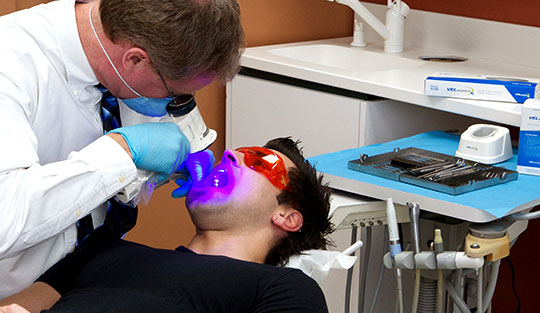Oral health and dental hygiene
Oral health is a crucial indicator of overall health, well-being, and quality of life. It encompasses various diseases and conditions, such as dental caries, periodontal disease, tooth loss, oral cancer, oral manifestations of HIV infection, oro-dental trauma, and congenital defects (e.g., cleft lip and palate). According to a 2017 report by the World Health Organization (WHO), oral diseases affect approximately 3.5 billion people globally. Additionally, oral cancer is among the 15 most common types of cancer worldwide, with almost 180,000 fatal cases annually, according to the International Agency for Cancer Research.
The primary risk factors for the leading non-communicable diseases (e.g., cardiovascular diseases, cancer, chronic respiratory diseases, and diabetes) are also modifiable risk factors for most oral diseases. These risk factors include tobacco use, alcohol consumption, and unhealthy diets rich in sugars. There is a proven association between oral and general health. Evidence-based research indicates that diabetes is linked to the development and progression of periodontal disease. Moreover, there is a strong correlation between increased sugar intake and diabetes, obesity, and dental caries.
Therefore, we recommend regular check ups to mantain your health in excellent condition.
Regular checkups should include:
Brushing teeth alone is insufficient to completely remove dental plaque from all surfaces of the teeth, particularly the areas between teeth. When not removed, dental plaque hardens and mineralizes into tartar, which requires professional removal. This treatment involves cleaning both hard and soft deposits using ultrasound, polishing, sandblasting, and rinsing with oral disinfectants, tailored to the specific needs of each patient. Additionally, patients are given instructions on how to maintain oral hygiene at home and which techniques are best suited for their individual needs.
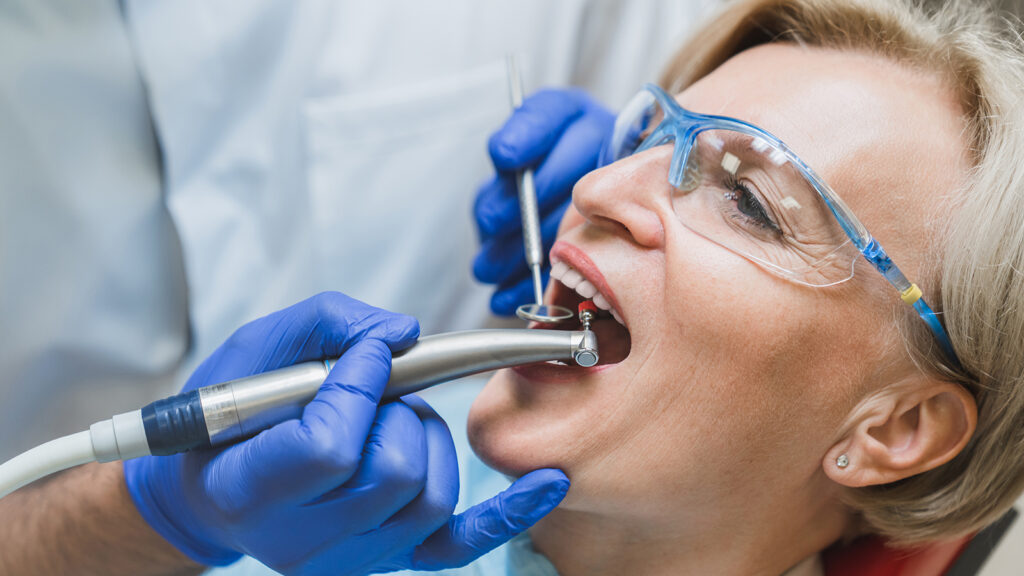
Once periodontal disease has been successfully treated and is in the maintenance phase, it is crucial for patients to receive thorough training on proper everyday oral hygiene practices and to maintain consistency in following them. This may include the use of interdental brushes, antibacterial solutions, dental floss, and/or oral pulsating irrigators as additional elements to their oral hygiene routine.
Regular periodontal cleanings are also extremely important, and the frequency of these cleanings should be determined by the therapist, typically ranging from 2-6 times per year. It is important to note that any restoration placed in the oral cavity, such as fillings, crowns, veneers, or dental implants, will not last long if the gums and periodontium are inflamed.
Therefore,
achieving sufficient oral hygiene and regular check-ups and cleanings
is essential in controlling and preventing periodontal disease from progressing.
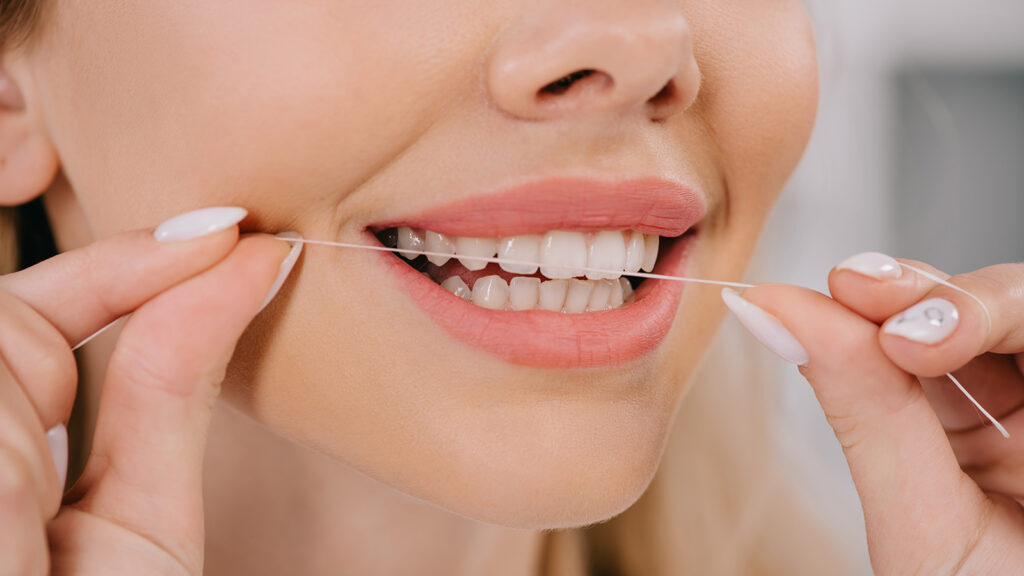
Dental implants are used as replacements for missing teeth. They can support crowns, bridges, or prostheses, depending on the initial condition of the patient. Even though they are made of titanium and surrounded by bone and gingiva, poor oral hygiene can cause them to lose support from the surrounding tissues. Therefore, maintaining and caring for implants should be the same as for natural teeth. Cleaning and brushing the crowns and bridges over the implants every day and keeping them perfectly clean allows implants to serve as a permanent replacement for missing teeth. The recommended frequency of professional cleanings and checkups should not be less than twice a year, which is also the gold standard for proper oral hygiene.
Comprehensive care throughout the entire process is necessary to achieve long-term results with implant-supported restorations, which is our goal and our experience so far.
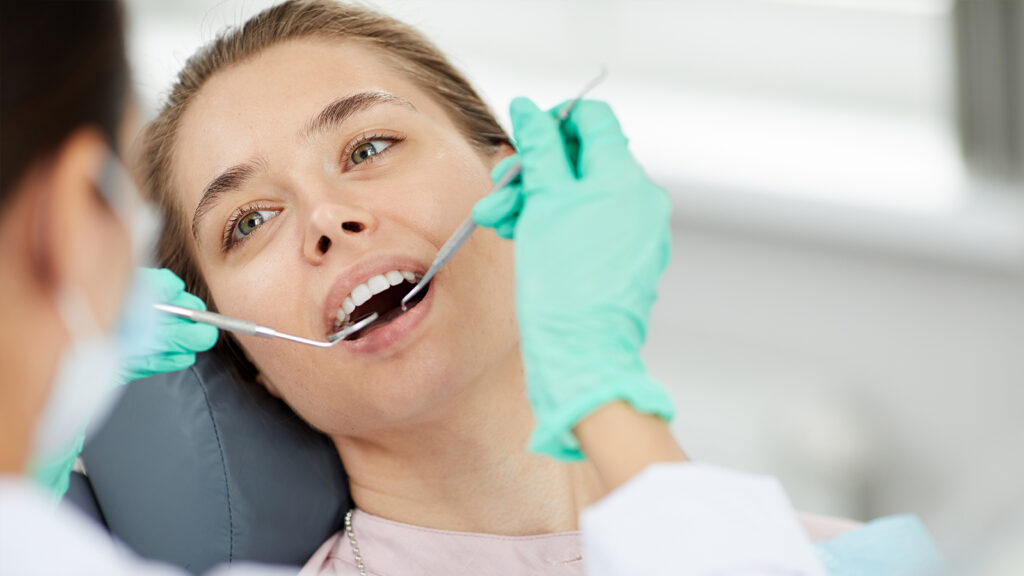
Prosthetic constructions are designed to restore the function and aesthetics of a patient’s mouth, making them an integral part of a new oral ecosystem. Just like natural teeth, prosthetic constructions are exposed to the same biological factors in the mouth, which means that they need to be professionally cleaned and their hygiene and condition regularly evaluated. It is important to understand that maintaining good oral health starts with practicing proper oral hygiene at home and visiting the dentist regularly for check-ups and cleanings.
By doing so, patients can ensure that their prosthetic constructions remain in good condition and function properly for a long time.
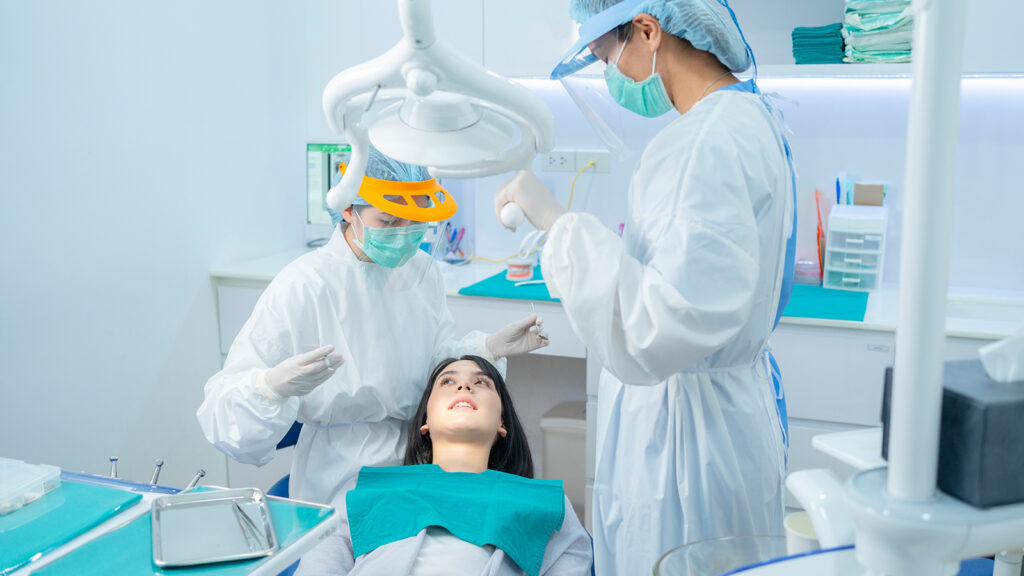
The detailed examination reveals the level of patient training and efficacy for oral hygiene. During the examination and professional cleaning, patients are informed and instructed on the proper use of dental floss, identification of areas not well-brushed, when to use interdental brushes, and how to maintain oral hygiene during orthodontic treatment. We demonstrate the appropriate technique, enabling patients to perform it accurately at home.
Only clean teeth without deposits can remain free of caries!
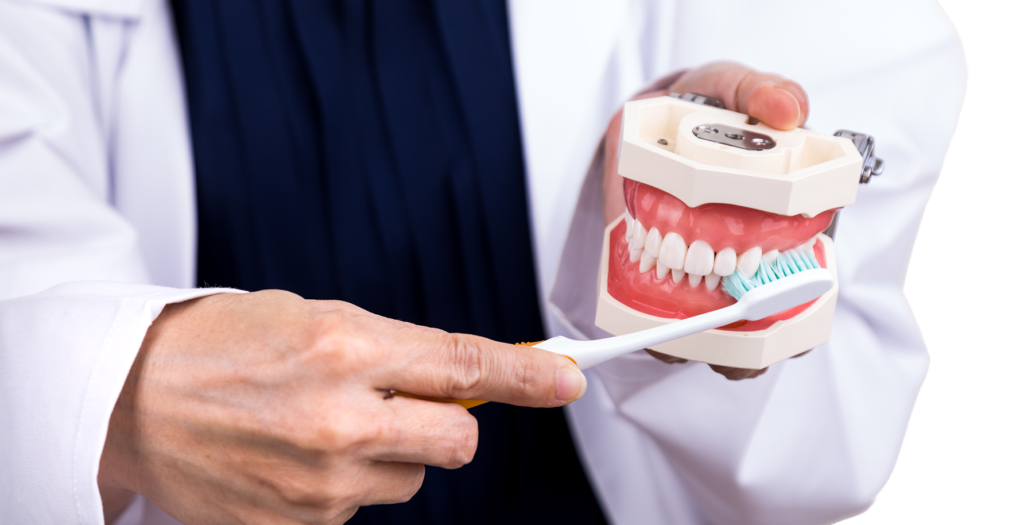
Oral cancer is a disease characterized by uncontrolled multiplication of malignant (cancerous) cells in the oral cavity or oropharynx.
ETERNA has developed a sophisticated device for the early detection of precancerous lesions and cancers in a simple and easy visual examination method that provides immediate results.
Early identification and detection of lesions significantly increase the chances for successful treatment of this disease.
Don’t forget to schedule an appointment and consult with your dentist.
